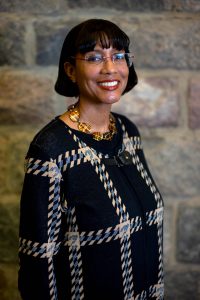
DEI retreat highlights successes and growth opportunities for ISR
July 28, 2022
Contact: Jon Meerdink, [email protected]
ANN ARBOR – Members of the Institute for Social Research’s leadership team attended a strategic planning retreat in June aimed at positioning ISR for the University of Michigan’s upcoming DEI 2.0 initiatives.
ISR Diversity, Equity, and Inclusion Director Sheri Notaro said the retreat allowed the team from ISR to interact with other units from across U-M as they reviewed the university’s progress on its DEI 1.0 goals while preparing for the rollout of new plans for diversity, equity, and inclusion.

Sheri Notaro, DEI Director
“Throughout the day we had time together, when we could break out and talk about what we thought worked well from 1.0, what we may have learned, some best practices, also any barriers that we had to overcome,” she said. “We also talked a great deal about how to get more input from ISR as a whole on DEI issues as we head into 2.0.”
Notaro said the institutional infrastructure created to support DEI at ISR was a particularly satisfying success from the 1.0 phase.
“We created an infrastructure where we can meet up once a month with ISR Director Kate Cagney, as well as the five center directors, their administrators, leads of our DEI working groups, and other DEI partners to focus on how to best address the DEI issues we’re working on,” she said.
ISR’s policy on accessible technology was also a successful initiative for the 1.0 phase. Inclusive and equitable access to technology is a key aspect of modern workplace life, and ISR was the first unit on campus to create a policy focused on accessible information technology. The University of Michigan has now finalized a similar policy for the campus as a whole.
Looking ahead to DEI 2.0, Notaro said several initiatives will be a priority. In particular is ISR’s Inclusive Research Matters series, which examines the role of diversity in an inclusive research process. The series received good reviews from participants and there is strong interest in expanding it for the university’s DEI 2.0 phase.
ISR will also continue to build on its DEI 1.0 objectives and initiatives, especially as they pertain to recruiting and hiring.
“Ensuring that we include a robust and talented pool of faculty, staff, and students who are bringing their own perspectives on diversity and social identity and ways of thinking and background into ISR is crucial to our research and training mission,” said Notaro. “We want to continue to think of innovative ways to expand the pool of folks who could join us at ISR.”
